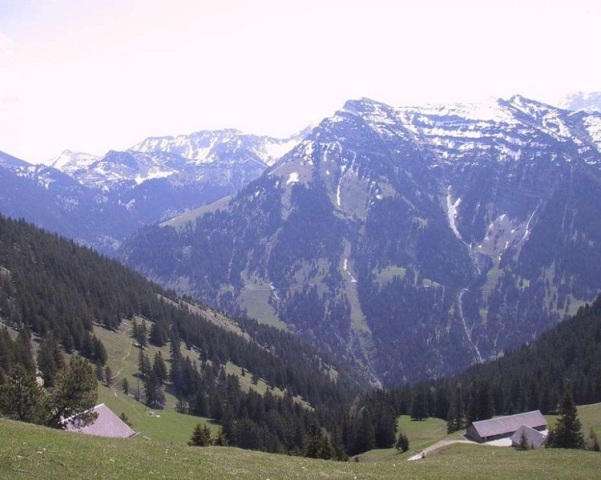Beauty, water sports and rich culture - all condensed into one tiny mass of land. You have to check out Liechtenstein!
Facts About Liechtenstein
One of the only two doubly landlocked nations in the world, the ‘Principality of Liechtenstein’ is unquestionably an European country worth exploring. As of July 2010, the nation accommodates a meagre population of 35,002. It is widely acknowledged as a tax haven, and was accused of assisting wealthy Germans in tax evasions involving millions of Euros. However, the OECD (Organisation for Economic Co-operation and Development) removed the principality from the black list of uncooperative countries in 2009 after Liechtenstein succumbed to the international pressure to improve transparency in its banking systems. Charles VI, the Holy Roman Emperor bestowed the then newly formed territory with the name "Liechtenstein" in honour of “his true servant, Anton Florian of Liechtenstein" on January 23, 1719. On this very day, Liechtenstein was declared a sovereign state of the Holy Roman Empire, which was later dissolved by Napoleon I in 1806. The onslaught of World War II shifted Liechtenstein’s close ties with the Austrian Empire to Austria-Hungary and finally to its neighbour, Switzerland with whom it formed a customs and monetary union. Scroll down and feast your eyes upon more interesting facts about this gorgeous country.

-
Apart from Uzbekistan, Liechtenstein is the only nation to be bordered entirely by other landlocked nations. The 160 sq km of land that defines Liechtenstein is bordered by Switzerland and Austria.
-
Liechtenstein’s first factory that dealt in ceramics was opened in 1836.
-
It’s Savings and Loans Bank was founded in 1861 as well as the first cotton-weaving mill.
-
Liechtenstein is the smallest German-speaking country on planet earth and the only German-speaking nation that doesn’t share a border with Germany.
-
79% of the inhabitants are Roman Catholics, while only 8% are Protestants.
-
Liechtenstein has been a member of the European Economic Area (an organization serving as a bridge between the 'European Free Trade Association' (EFTA) and the EU since May 1995.
-
During winter, the thermometer doesn’t dip below -15°C, while during summer; it ranges between 20°C to 28°C.
-
Small in size, Liechtenstein measures tall in economy as a highly industrialized nation with a vital financial service sector. Moreover, it has the highest per capita income in the world!
-
Its Capital City is Vaduz, while the country’s biggest town is Schaan.
-
Most of Liechtenstein's terrain is mountainous, which consequentially makes it a fabulous winter sports destination.
-
Richly cultivated fields and small farms decorate the landscapes, both in the north (Unterland, lower land) and in the south (Oberland, upper land).
-
Liechtenstein is a constitutional monarchy and is divided into 11 municipalities.
-
In December 2008, Liechtenstein signed a Tax Information Exchange Agreement with the US.
-
Liechtenstein played neutral in the Second World War and wholly depended upon Switzerland for assistance and guidance. Liechtenstein had safeguarded family treasures within the war zone.
-
Czechoslovakia and Poland expropriated the whole of Liechtenstein dynasty's hereditary lands as they considered it to be the possessions of the Germans.
-
During the Cold war, Liechtensteiners were forbidden to set foot on Czechoslovakian Land. Nevertheless, diplomatic relations were later established between the two nations on 13 July 2009.
-
Liechtensteiners usually eat Zmorga for breakfast which comprises of coffee and bread with jam. Zmittag is their main meal of the day which typically includes a main dish, soup, salad, and dessert. Znacht is eaten at dinnertime and comprises of an open-faced sandwich made with various kinds of meat and cheese.
-
Liechtenstein imports more than 90% of its energy requirements.
-
The Constitution of Liechtenstein was adopted in March 2003 and has thereby replaced the previous 1921 constitution which had established Liechtenstein as a constitutional monarchy.
-
Käsknöfle, one of their distinctive regional dishes consists of noodles made by squeezing a mixture of flour, water, and eggs through a perforated board after which, the noodles are baked with grated cheese.
-
Parliament elects from among its members a "Landesausschuss" (National Committee) made up of the president of the parliament and four additional members.
-
Joseph Rheinberger, an all time famous musician and composer was born the son of the Prince of Liechtenstein's treasurer on March 17 1839 in the capital village of Vaduz.
-
Prince Hans-Adam II is the present reigning prince of Liechtenstein. He ascended the throne in 1989.
See also
More from iloveindia.com
- Home Remedies | Ayurveda | Vastu | Yoga | Feng Shui | Tattoos | Fitness | Garden | Nutrition | Parenting | Bikes | Cars | Baby Care | Indian Weddings | Festivals | Party ideas | Horoscope 2015 | Pets | Finance | Figures of Speech | Hotels in India : Delhi | Hyderabad | Chennai | Mumbai | Kolkata | Bangalore | Ahmedabad | Jaipur
- Contact Us Careers Disclaimer Privacy Policy Advertise With Us Lifestyle Sitemap Copyright iloveindia.com. All Rights Reserved.







